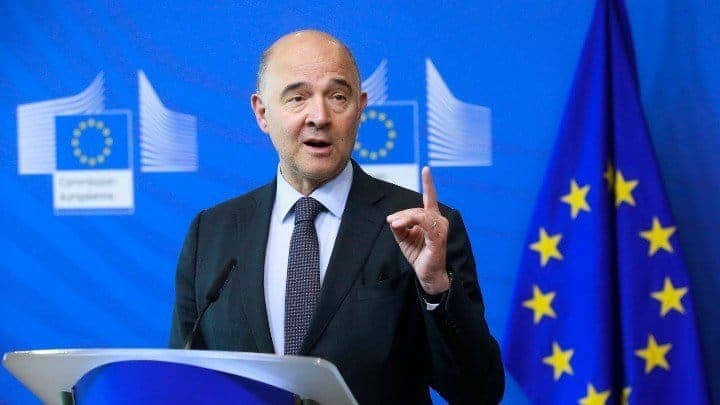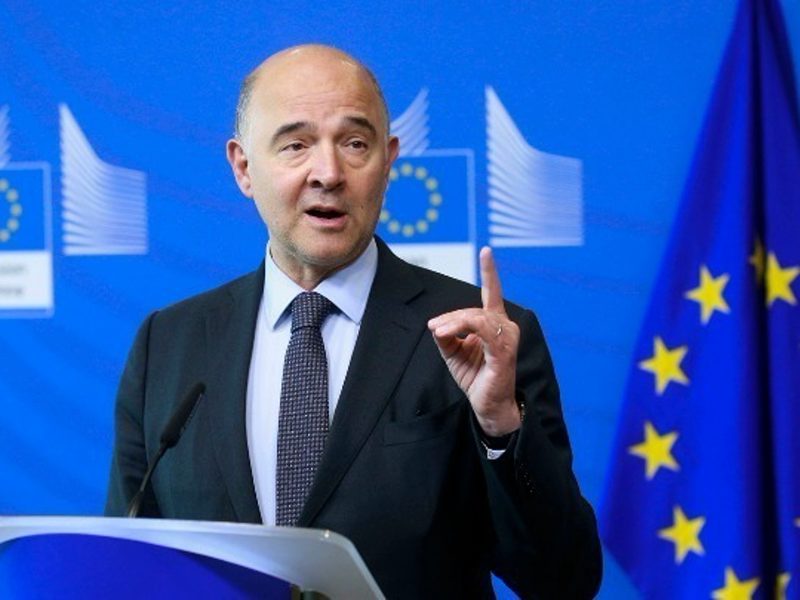
The European Commissioner for Economic and Financial Affairs Pierre Moscovic emphasised on Monday the significance of this week's Eurogroup meeting where Greece look to a succesful exit from the troika supervision.
"Thursday's Eurogroup must take the decisions necessary to ensure a successful conclusion of the ESM programme. So it's a good time to recall some key developments of these past few years," Moscivici said through a social media post.
"The Greek economy sank into recession in 2008, contracted by as much as 9.1 % in 2011, grew briefly in 2014 then stagnated again in 2015-16. Last year saw a return to growth (1.4 %) and we forecast the economy will expand by 1.9 pct this year and 2.3 pct in 2019.
"The collapse in confidence in Greece’s public finances in late 2009 froze the country out of the markets and marked the start of the sovereign debt crisis. What a turnaround: from a deficit of -15.1 pct of GDP in 2009, Greece has posted a surplus since 2016 (0.8 % last year)," he noted and added:
"Since peaking at the unbearably high level of 27.5% in 2013, unemployment has been declining steadily. It was 21.5% in 2017 and is forecast to fall to 20.1% this year 18.4% in 2019. On the right track, but still a way to go.
"A key priority of the ESM programme has been to support the most vulnerable. No fewer than 290,000 households now benefit from the new Social Solidarity Income. That's around 600,000 individuals or 5.8% of the Greek population.
"One of the most essential reforms is the establishment of the first nationwide land registry, or cadastre. Coverage is now at 29% of real property rights. When completed in 2021, it will facilitate property tax collection, help boost investment in tourism and industry.
"The introduction of universal healthcare coverage, completed in 2016, means two million uninsured citizens now enjoy full access to medical services as a fundamental right recognised by law."
Moscovici also referred to unprecedented solidarity: since 2010, 273.7 billion euros has been provided to Greece (241.6 billion euros from euro area countries, including the latest 1 billion euro for arrears decided last week, and 32.1 billion euros from the IMF).
By the end of the ESM_Press programme launched in 2015, Greece will have implemented more than 450 actions (including the 88 under the fourth and final review). Greece has been discussed in 33 meetings of the Eurogroup since July 2015.
"Greece has delivered on its commitments and I am confident that Member States will now deliver on theirs. We need a balanced compromise between all actors, ensuring growth and sustainable debt for the future of this country that has gone through so much," he stressed.


